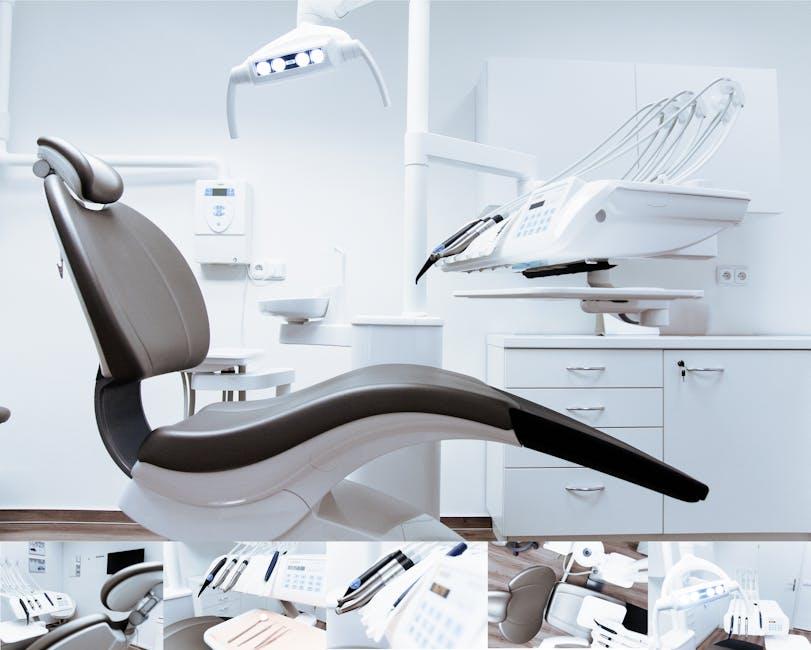
Factors Associated with Dental Clinic Use by Clients in Nigeria During the COVID-19 Pandemic – BMC Oral Health
The COVID-19 pandemic has transformed healthcare access globally, and dental services in Nigeria were no exception. Understanding the factors that influenced dental clinic use by Nigerian clients during this challenging time is crucial for improving oral health outcomes and preparing for future disruptions. This article explores these key factors based on findings from BMC Oral Health, providing valuable insights for dental practitioners, healthcare policymakers, and the public.
Introduction
The outbreak of COVID-19 greatly impacted how dental clinics operated worldwide. In Nigeria, where oral health infrastructure faces multiple challenges, the pandemic intensified these issues, affecting patients’ ability and willingness to seek dental care. Fear of virus transmission, lockdown restrictions, and economic downturns created barriers to accessing essential dental services. This article unpacks the factors that shaped dental clinic use during the pandemic in Nigeria and suggests practical steps to enhance dental care access moving forward.
Key Factors Influencing Dental Clinic Use During COVID-19 in Nigeria
1. Fear of COVID-19 Infection
One of the predominant factors reducing dental visits was anxiety about contracting COVID-19 within healthcare settings. Many clients perceived dental clinics as high-risk areas due to close contact with the mouth and aerosol-generating procedures.
2. Government-Imposed Lockdowns and Movement Restrictions
To curb viral spread, Nigeria implemented various lockdown measures that limited mobility. This directly reduced the number of non-emergency dental visits during peak pandemic periods.
3. Economic Hardship and Reduced Income
Economic disruptions caused by the pandemic led many people to prioritize essential spending, often deferring dental treatment perceived as non-urgent or cosmetic.
4. Availability and Accessibility of Dental Clinics
Some clinics either closed temporarily or reduced operational hours, while many rural and underserved areas lacked clinics equipped to safely provide care during the pandemic.
5. Public Awareness and Perception of Oral Health Importance
The level of awareness about maintaining oral health and the risks associated with delaying dental visits influenced clinic use. Misconceptions about dental emergencies and COVID-19 risks also played a role.
6. Implementation of Infection Prevention Protocols at Clinics
Clinics that visibly implemented safety protocols (such as PPE use, sanitization, and patient screening) tended to reassure clients, improving utilization rates.
Overview Table: Major Factors Affecting Dental Clinic Use
| Factor | Impact on Clinic Use | Examples |
|---|---|---|
| Fear of COVID-19 Infection | Significant decline in visits | Concern about aerosols, close contact |
| Lockdowns & Restrictions | Access limited to emergencies | Movement curfews, clinic closures |
| Economic Hardship | Deferment of non-urgent care | Job losses, reduced income |
| Clinic Availability | Reduced operational hours/closures | Urban vs rural disparities |
| Public Awareness | Varied based on education level | Oral health misconceptions |
| Infection Control Measures | Improved confidence & visits | Use of PPE, patient screening |
Benefits of Understanding These Factors for Nigeria’s Dental Health Sector
Uncovering the influences on dental clinic use during the pandemic offers several advantages:
- Targeted Public Health Strategies: Tailoring communication and outreach to overcome fear and misinformation.
- Improved Clinic Preparedness: Encouraging clinics to implement and advertise robust infection prevention measures.
- Policy Development: Informing government decisions on when and how to maintain dental services during emergencies.
- Resource Allocation: Directing resources to economically affected communities and underserved areas.
Practical Tips for Clients Seeking Dental Care During and Post-Pandemic
If you are considering visiting a dental clinic during or after pandemic disruptions, these tips can help ensure safety and a positive experience:
- Confirm Clinic Safety Protocols: Before your visit, ask about screening procedures, PPE use, and sanitization practices.
- Schedule Emergency and Essential Visits First: Prioritize treatments that relieve pain or prevent worsening conditions.
- Maintain Daily Oral Hygiene: Good home care reduces the need for urgent visits.
- Use Tele-Dentistry Services When Possible: Consult dentists remotely for advice or minor issues.
- Keep Up with Vaccinations: COVID-19 vaccinations contribute to safer clinic environments.
Case Study: Dental Clinic Use in Lagos State During COVID-19
Lagos State, Nigeria’s economic hub, experienced some of the sharpest declines in dental visits at the pandemic’s peak. A study published by BMC Oral Health detailed that:
- Visits dropped by approximately 60% during lockdown months.
- The majority of patients who visited did so for emergency care only.
- Clients expressed significant anxiety about contracting COVID-19 at the dental office.
- Dental clinics that advertised strict infection control saw higher patient trust and gradual return of visits post-lockdown.
Firsthand Experience: Testimonial from a Nigerian Dental Patient
“When the pandemic started, I was scared to go to my dentist. But my toothache became unbearable. I chose a clinic that showed clear safety measures like masks, hand sanitizers, and temperature checks. That gave me the confidence to go. The dentist was very careful, and I felt safe throughout.” – Amina, Lagos
Conclusion
The use of dental clinics by Nigerian clients during the COVID-19 pandemic was shaped by several interlinked factors, including fear of infection, government policies, economic challenges, and clinic readiness. Addressing these issues proactively is essential for strengthening Nigeria’s oral healthcare system and ensuring uninterrupted access to dental care during crises. Patients and practitioners alike benefit from transparent communication, adherence to safety protocols, and adaptable service delivery models. As we move towards post-pandemic recovery, ongoing research and responsive healthcare policies will support better oral health outcomes across Nigeria.
For more detailed research on this topic, visit BMC Oral Health.


